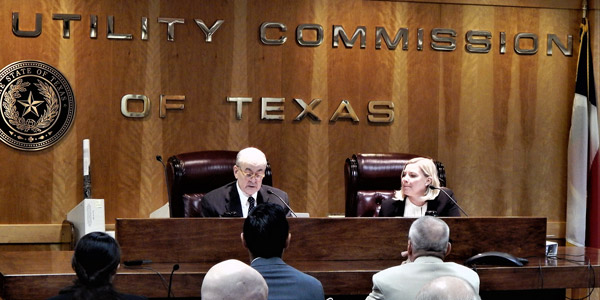By Tom Kleckner
AUSTIN, Texas — The Public Utility Commission of Texas agreed Friday that Southwestern Public Service does not have the exclusive right to build transmission facilities in its service territory, signaling a final order will be considered at its next meeting.
The PUC’s decision was not the answer SPS was looking for when it filed a request asking the commission to determine whether Texas law includes a right of first refusal that overrides FERC Order 1000. (See Texas PUC Agrees to Take up SPP, SPS Request on ROFR.)
Wes Reeves, spokesman for SPS parent Xcel Energy, said the company “is disappointed with this ruling and will seek rehearing and appeal.” The PUC’s next meeting is scheduled Aug. 17 (Docket No. 46901).
SPS contends that the state’s Public Utility Regulatory Act (PURA) allows it, as the incumbent utility operating outside ERCOT, the ROFR to build in the service area prescribed by the PUC. That would prevent a potential competitive project under Order 1000.
The commission disagreed, sticking to its staff position that “an incumbent utility’s expertise in providing service within its certificated service area does not confer an exclusive legal right to construct transmission facilities within the utility’s certificated service area.”
Commissioner Ken Anderson offered little of his own reasoning but noted ERCOT’s Competitive Renewable Energy Zone (CREZ) project backed his position.
“The fact is, whether it’s CREZ lines or non-CREZ lines, we have transmission lines owned by different service providers inside and outside ERCOT that crisscross each other’s distribution service territory,” he said.
SPS filed a lawsuit in state district court in January, seeking approval to build the project and an injunction prohibiting SPP from issuing a notification-to-construct. The two parties agreed to suspend the proceeding to give the PUC an opportunity to decide how to interpret PURA.
Parties to See LP&L Contested Case After Aug. Meeting
All parties involved in Lubbock Power & Light’s planned migration of its load from SPP to ERCOT agreed they are ready to move on to a contested case, but not until after the PUC’s Aug. 17 meeting (Project No. 45633).
Commissioner Brandy Marty Marquez said the delay would give her and PUC staff more time to study data compiled by ERCOT and SPP in a joint study on the potential move’s financial and reliability impacts.
“Everybody’s ready to go but me,” said Marquez, requesting a hearing schedule be set at the commission’s next open meeting.
Anderson agreed, saying he hasn’t yet “completely digested” the studies.
“There’s a lot of good data in the SPP and ERCOT report,” he said. “It’s not brought together in [a] bottom line, but you can derive it with little work.”
The study indicated SPP would see small production cost decreases in all of its transmission zones except for SPS, which serves LP&L’s 430 MW of load in a contract that has been extended into 2021. ERCOT would see production cost increases but hopes to balance that out by unlocking wind energy in the Texas Panhandle. (See Lubbock Load Could Boost ERCOT Production Costs by $66M.)
LP&L has said it intends to complete a study similar in scope and scale to the grid operators’. It wants to begin the contested case in May 2018, allowing it to successfully integrate with ERCOT before its “bridge agreement” with SPS expires.








